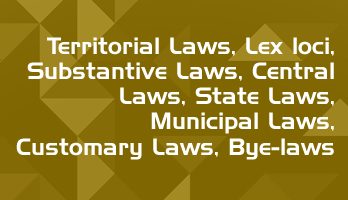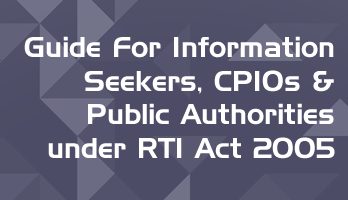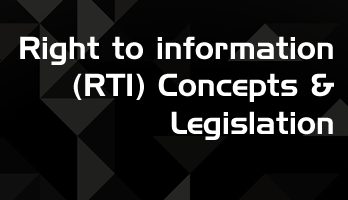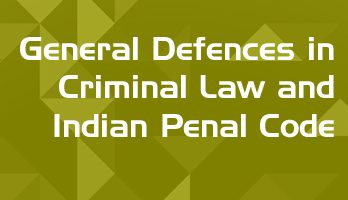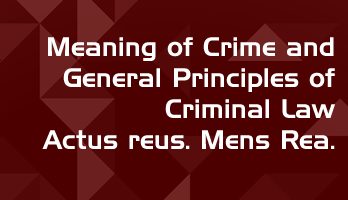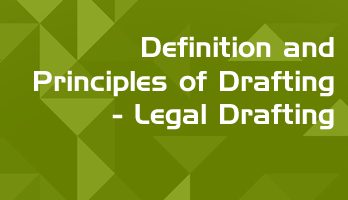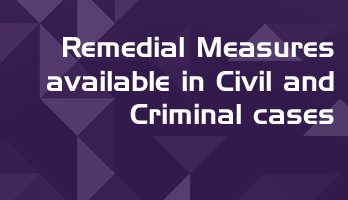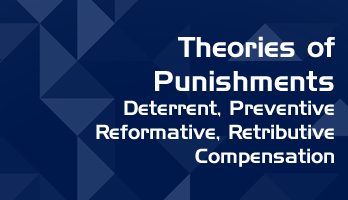Free Full Course Available on LawMint's YouTube Channel
How to Land Your Dream LLB Internship in a Top Law Firm
- Part 1 - Introduction
- Part 2 - Internship Planning
- Part 3 - Internship Research
- Part 4 - Building Your Profile
- Part 5 - The Email
- Part 6 - The Resume
- Part 7 - The Cover Letter
- Part 8 - The Interview
- Part 9 - Self Development
Practical and comprehensive course, with real examples and step-by-step analysis of the complete internship application process. Check out LawMint's YouTube channel now!
The Principles of Natural Justice
Natural Justice represents higher procedural principles developed by judges which every administrative agency must follow in taking any decision adversely affecting the rights of a private individual. The principles of natural justice are firmly grounded under various Articles of the Constitution.
There are mainly two principles of Natural Justice.
- ‘Rule against Bias’ which signifies that the judge must be impartial and must decide the case objectively on the basis of the evidence on record. There are various factors which may influence the judgement. These include personal bias, pecuniary bias, subject matter bias, departmental bias and preconceived notion bias.
- ‘Rule of Fair Hearing’ which means that a person must be given an opportunity to defend himself. The important components of this rule are right to notice, right to present case and evidence, the right to rebut adverse evidence, cross- examination, legal representation, report of the enquiry to be shown to the other party and post decisional hearing.
Similarly, the Natural Justice demands that every decision should mention the reasons for arriving at such decision – This is the third principle of Natural Justice.
Reasoned Decisions or Speaking Orders
The third principle of Natural Justice which has developed in course of time is that the order which is passed affecting the rights of an individual must be a speaking order.
This is necessary with a view to exclude the possibility of arbitrariness in the action. A bald order requiring no reason to support it may be passed in an arbitrary and irresponsible manner. It is a step in furtherance of achieving the end where society is governed by Rule of Law.
The other aspect of the matter is that the party, against whom an order is passed, in fair play, must know the reasons of passing such order. It has a right to know the reasons.
The orders against which appeals are provided must be speaking orders. Otherwise, the aggrieved party will not be in a position to demonstrate before the appellate authority as to in which manner, the order passed by the initial authorities is bad or suffers from illegality.
A Speaking order or reasoned decision contains the rationale in its support. The order essentially ‘speaks for itself’ and explains the background for the decision.
The three main features of a Reasoned Decision or a Speaking Order are :
- It should contain the rationale or reasons in support of the decision.
- There is no specific format to be followed, as long as the details are clearly laid out.
- They are applicable to decisions in all areas of law.
To a very great extent, in such matters bald orders render the remedy of appeal nugatory.
However, it is true that administrative authorities or Tribunals are not required to pass detailed orders as passed by the courts of law. While, they may not be very detailed and lengthy orders, they must at least show that the mind was applied and for the reasons, howsoever briefly they may be stated, the order by which a party aggrieved is passed.
There cannot be any prescribed form in which the order may be passed but the minimum requirement as indicated above has to be complied with.
The Supreme Court has many times taken the view that non-speaking order amounts to depriving a party of a right of appeal. It has also been held in some of the decisions that the appellate authority, while reversing the order must assign reasons for reversal of the findings.
Questions
Explain the meaning of ‘Reasoned Decisions’ or ‘Speaking order’.
The term ‘Reasoned Decisions’ or ‘Speaking orders’ means that the order which is passed affecting the rights of an individual must be speaking order.
The party against whom an order is passed in fair play, must know the reasons of passing the order.
What do you understand by the term, ‘Speaking Order’? Point out the significance of ‘Speaking Order’ in administrative proceedings.
‘Speaking order’ is the order which mentions the reason(s) for arriving at a particular decision. It helps in avoiding arbitrariness. It helps in building up the trust and confidence in the system. It provides the ground (s) of appeal if desired by the aggrieved party.
Free Full Course Available on LawMint's YouTube Channel
How to Land Your Dream LLB Internship in a Top Law Firm
- Part 1 - Introduction
- Part 2 - Internship Planning
- Part 3 - Internship Research
- Part 4 - Building Your Profile
- Part 5 - The Email
- Part 6 - The Resume
- Part 7 - The Cover Letter
- Part 8 - The Interview
- Part 9 - Self Development
Practical and comprehensive course, with real examples and step-by-step analysis of the complete internship application process. Check out LawMint's YouTube channel now!
Acknowledgement : This article is adapted from Swayam-NIOS course material.



